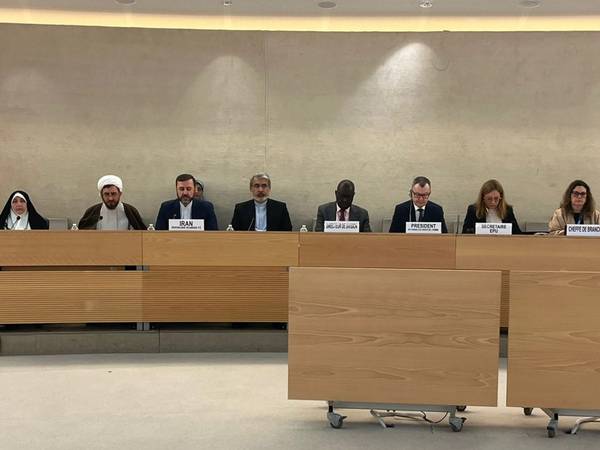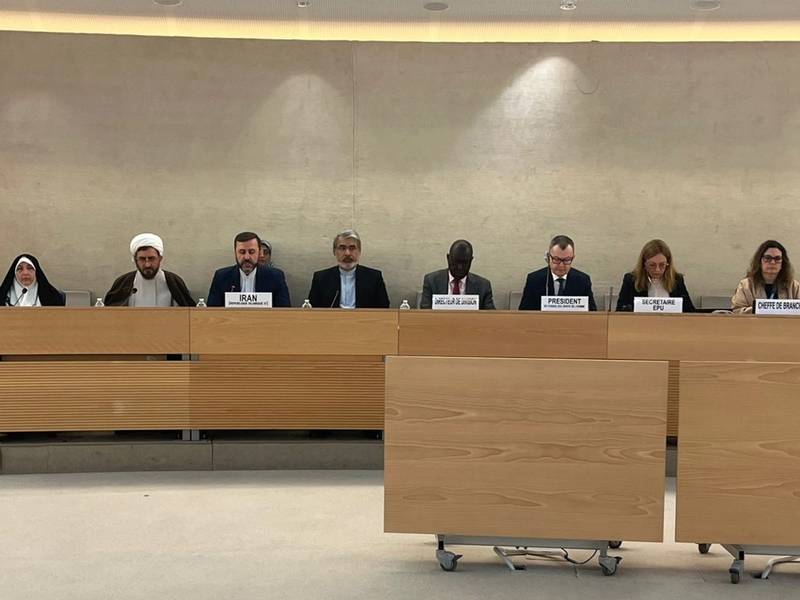An Iranian official at United Nations on Friday denied that the country detains journalists or civil society figures, even as a rights group reported nearly 400 cases of judicial and security actions targeting journalists and media outlets last year.
"In Iran, nobody would be detained due to his professional activities, like the media, like the civil society," Kazem Gharibabadi, Iran’s deputy minister for international and legal affairs at the ministry of foreign affairs told the 48th session of the Universal Periodic Review (UPR) on Friday.
He also dismissed UN Special Rapporteur’s reports on Iran, arguing that they fail to reflect the realities of human rights in the country and rely on incorrect information and unreliable sources with a biased approach and political motivations.
Gharibabadi did not clarify which sources or organizations Iran considers credible, adding only that Iran views the appointment of a UN Special Rapporteur on the country as "an act based on continuous political mobilization against Iran", orchestrated by certain member states of the Human Rights Council.
Over the past year, many independent non-governmental organizations have expressed concern over its rights abuses including its ongoing crackdown on journalists.
Iran’s press freedom ranking remains among the worst globally, with Reporters Without Borders placing the country 176th out of 180 in its 2024 World Press Freedom Index.
Earlier this month, Defending Free Flow of Information (DeFFI), a non-profit which monitors and documents press freedom in Iran said in its annual report it documented 385 judicial and security actions targeting at least 256 journalists and media outlets in 2024.
Among these, 36 journalists and media activists were arrested, and 11 served prison sentences totaling 69 years and 10 months. Penalties included flogging with 110 lashes and fines.
The report outlined a deliberate pattern of repression, correlating significant waves of arrests and prosecutions with major political events, including the death of former president Ebrahim Raisi, the fall of Bashar al-Assad’s government in Syria and tensions between Iran and Israel.
DeFFI said Iran’s judicial and security bodies systematically used charges such as “dissemination of falsehoods aimed at disturbing public opinion” to stifle dissent and enforce self-censorship among journalists.
The repression disproportionately impacted female journalists, with 40 women facing judicial and security actions, including arrests, prison sentences, and professional bans. Three female journalists received five-year prison terms, among the harshest sentences issued in 2024.
While Gharibabadi denied the existence of ethnic minorities in Iran on Friday, DeFFI’s report said the Islamic Republic also intensified media suppression outside Tehran, particularly in provinces with significant ethnic minority populations, such as Khuzestan, Sistan and Baluchestan, and Kurdistan.
DeFFI reported that judicial action against journalists in these areas contributed to a growing “news desert” depriving citizens of reliable, independent information.

